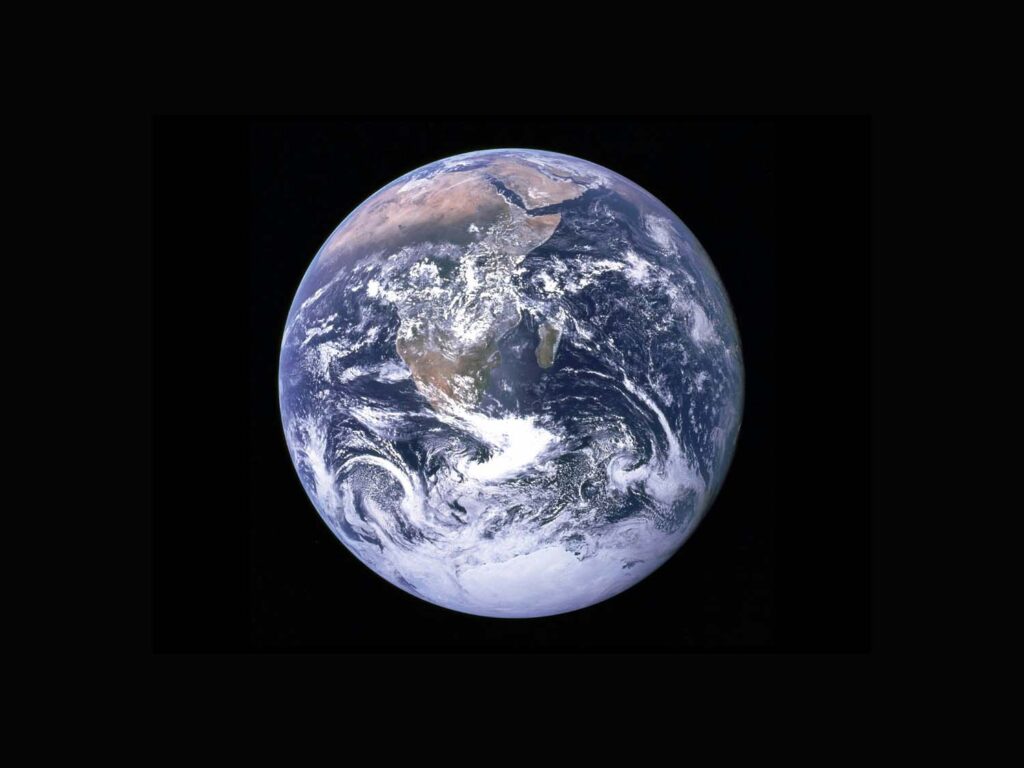Written by Elijah Shoults

In recent years when the topic of protecting the environment comes up the conversation is often focused on climate change/global warming. Those on the left believe the scientific community’s warnings of how devastating these changes will be for human life, while many of those on the right will try to find one reason or another to dismiss the scientific consensus. It can be easy for regular people to dismiss climate change because the changes are happening gradually and not consistently. However climate change is only one of the factors contributing to the mass extinction which has begun. Other, more visible problems include the depletion of aquifers, declining populations of bees and other pollinators, overall degradation of soil fertility, groundwater contamination from “forever chemicals”, microplastics in the food chain, and ever-growing dead zones and garbage patches in the oceans.
Many of these issues should be of particular concern to rural voters. Soil degradation is making it more difficult to grow crops, a third of the fertilizer used in the US simply compensates for the lack of fertility. The runoff from this fertilizer use has ripple effects throughout the environment, including the dead zone in the Gulf of Mexico.
Much of the world’s food supply depends on groundwater pumped up from aquifers, but in America and around the world these aquifers are being depleted faster than rainfall can refill them. The Ogallala Aquifer which feeds much of the Midwest could be depleted in 50 to 100 years if our habits don’t change. While some water can be conserved through technological advancement and smarter irrigation practices, any long-term solution would likely involve switching to crops which use less water.
Much of our water supply is contaminated with PFAS, lead, and other hazards. PFAS are known as “forever chemicals” because they can take thousands of years to break down, and they are linked to numerous health conditions. People can also be poisoned by wild game and fish which have absorbed PFAS. Lead contamination can cause irreversible brain damage. Nitrates from agricultural runoff is another hazardous pollutant.
Bees and other pollinators are dying off at alarming rates. They are crucial for pollinating our agricultural crops, and they also perform this necessary function in the wild. While we can cultivate domesticated honeybees, this doesn’t replace the work that natural pollinators do for the broader ecosystem, and history has shown us that reliance on just a few species leaves us vulnerable to diseases that can wipe them out. That’s why biodiversity is so important, our future on this planet requires that we stop causing so many species to go extinct.
In the last five centuries hundreds of species have been declared extinct, and those are just the ones we know about. Scientists are hesitant to declare any species extinct, but even if a species is simply endangered to the point that it can’t be found that means that it can’t functionally contribute to the environment like it’s supposed to. When a species is lost we lose a unique part of the ecosystem, an irreplaceable genetic code, and a part of our heritage which can no longer be passed down to our children. The rate at which we are currently losing species qualifies as the beginning of a mass extinction event, and we need to take intentional steps to reverse this loss of life while we still can.
So how does the Biden-Harris administration measure up on these issues? Multiple experts agree that Biden has an excellent environmental record. He rebuilt the EPA after Trump trashed it, allowing for stronger enforcement of environmental regulations, implementing improved fuel efficiency standards, and funding cleanups of polluted areas. He has conserved millions of acres of land for wildlife and restored protections for endangered species which were weakened by Trump. He has invested hundreds of billions of dollars into green energy infrastructure, a necessary step in transitioning away from fossil fuels.
Now that we know the Democratic and Republican party platforms for 2024 we can see a huge difference in their policies. Biden and Harris set the first national standards for PFAS in the water supply, have begun the process of replacing every lead pipe in the country, and are committed to requiring polluters to pay for cleaning up their messes. The Republican platform doesn’t even mention clean water and ignores the issues of PFAS and other toxic chemicals. An important part in the fight for environmental protections is reducing the power of Big Agriculture. These giant corporations use their wealth to lobby against necessary reforms, and their factory farms tend to pollute more than family farms do. Biden has allocated billions in funding to help family farms adopt sustainable practices and is supporting the growth of independent meat processors. Going forward, Democrats have also pledged to fight for the rights of farmers to repair their own equipment, rather than having to pay the manufacturing companies to do it.
It is often difficult for working-class people to place importance in environmental issues which will cause problems in the future when they are having trouble making ends meet in the present. That’s why combating price gouging from Big Ag and Big Oil has the dual purpose of lowering their ability to influence our politicians and giving voters the economic security needed for them to look to the future. Democrats have passed anti-price-gouging legislation in the past and will continue this work in the future. Trump on the other hand wants to continue to give billions in tax breaks to oil companies.
It can be difficult to balance economic and environmental policies. Our society has many competing interests and requires compromises to get anything done. The Democrats plans for the environment may not be perfect, but they have made tangible improvements to the health of our planet and our people. With so many species at risk of extinction, any steps backwards could result in permanent losses to our ecosystem, we must not allow our progress to be undone.
